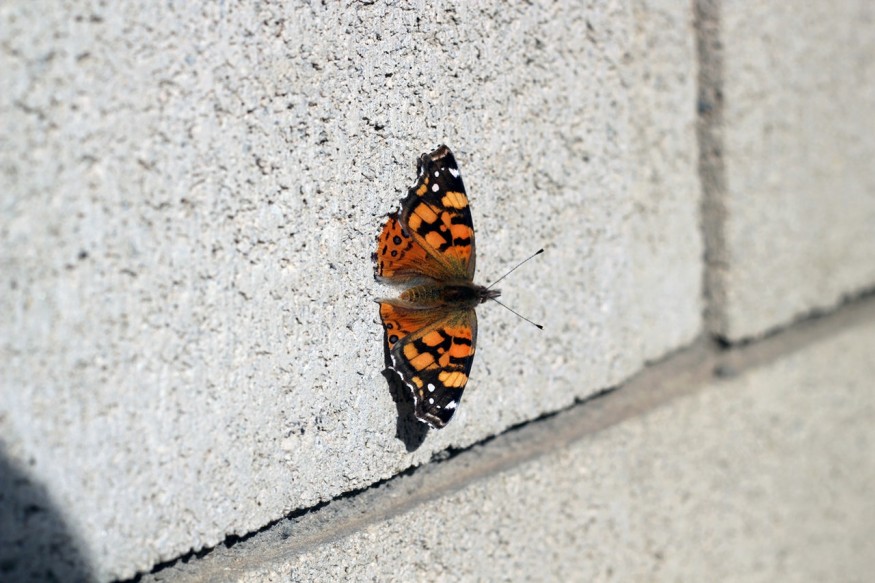
Which Are OK and Which to Get Rid Of
You must be aware of this. Although invisible, bugs do exist in your home. A study showed that the average American home features up to 100 species of insects. Considering that this category makes up 75% of life on Earth, it's no surprise that they're taking advantage of our homes, too.
Just as they vary in appearance, these unwanted roommates vary in the impact they have on your home. You may be tempted to buy the bug spray and blast away, but it can be toxic and detrimental to the Earth.
So, today, we'll take a look at common pests, ways to get rid of them, and mention some species that you're better off leaving unharmed.
Common Home Bugs
It's near impossible to mention every species of bug which may be residing in your home. So, instead, we decided to focus on the four most common kinds.
Ants
Ants are the number one nuisance pest in America. The small yet mighty creatures can often be found in a single-file line along your kitchen floor. Ants cause a variety of home issues, including food contamination and property damage.
There are over 700 species of ants in the US, so it may be best for a professional to come and identify the kind before you try to do anything about the situation.
Bed Bugs
Bed bugs, despite their name, live in many areas both inside and outside the home. They enjoy feeding on human skin, as we're not covered in fur like most animals. They're known as 'nest parasites' because they nest and keep feeding on the same source.
People usually fail to notice they've been exposed to bed bugs until they see bite marks.
Bees, Hornets, Wasps
With their low hum, these bugs are the homeowner's greatest enemy. While they can be useful in maintaining a healthy ecosystem, they are infamous for nesting near doors and windows. Besides, while bees can be friendly, the wasps are aggressive.
If you notice a nest attached to a fence, awning, a wall, or a similar surface, you know you have a problem.
Beetles
Beetles are the most numerous pests in the world, with over 350,000 known species. They come in a variety of colors, shapes, and sizes. What interests them in your home includes fabrics and grains, to which they cause damage.
Example Solutions
You need to keep the battle going if you plan on maintaining efficient pest control. Understanding why your home is infested and ways to deal with it already takes you halfway to the destination.
So, arm yourself with a pest guide, treatment methods, and contact information of a professional pest control company.
Besides, you can do a lot by yourself. Here are some simple guidelines:
Store garbage bins away from home
Store firewood away from home
Screen crawl spaces, doors and windows, and weather stripping
Ensure proper drainage of standing water
Minimize dust and clutter around the house
Don't leave food in the open
Wipe spills and crumbs asap
Consult your veterinarian if you have pets
Not all pests require harsh chemicals. Many homeowners and companies alike are finding more natural approaches to treating or relocating pests. Besides, if you don't have a full-blown problem yet, 'soft' remedies are an excellent means of prevention.
If all else fails, go to a professional exterminator. All legitimate companies will feature trained professionals that will assess your situation with accuracy and offer a range of adequate solutions.
Exceptions to the Rule
Although bugs are annoying, you don't have to (and shouldn't) kill every insect you see. Insects can be beneficial to you and your environment.
Honeybees
Not only are they valuable to the ecosystem, but they also make honey. As long as they aren't inside your home, you should leave them alone. If you find them where they shouldn't be, find a local beekeeper to adopt them instead of killing them.
Ladybugs
As long as they stay outside your home, ladybugs are friends. They eat garden pests, fruit flies, and other nuisances if you're trying to grow anything. You should check if you have a breed of ladybug which feeds on plant leaves, though.
Harmless Spiders
Most household spiders cannot harm humans. Instead, they help by feeding on small insects that you don't want around.
The Bottom Line
Household bugs are so typical, and yet, every homeowner will shriek in their existence. It's hard to know what to do when your home is invaded. Remember that no home is immune to pests, but there are things you can do.
Be prepared, arm yourself with information, and be ready for a battle. Work on understanding your issue, and handling it will become much more manageable.
© 2026 NatureWorldNews.com All rights reserved. Do not reproduce without permission.





